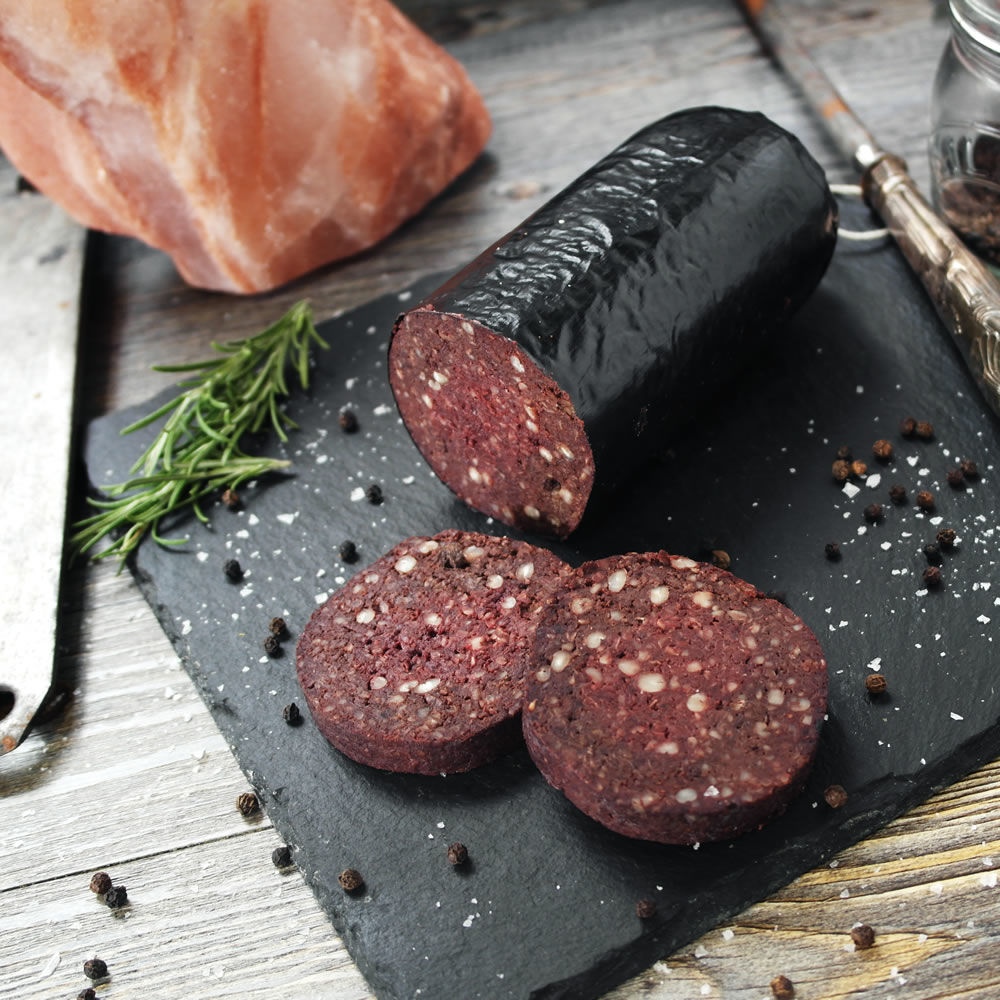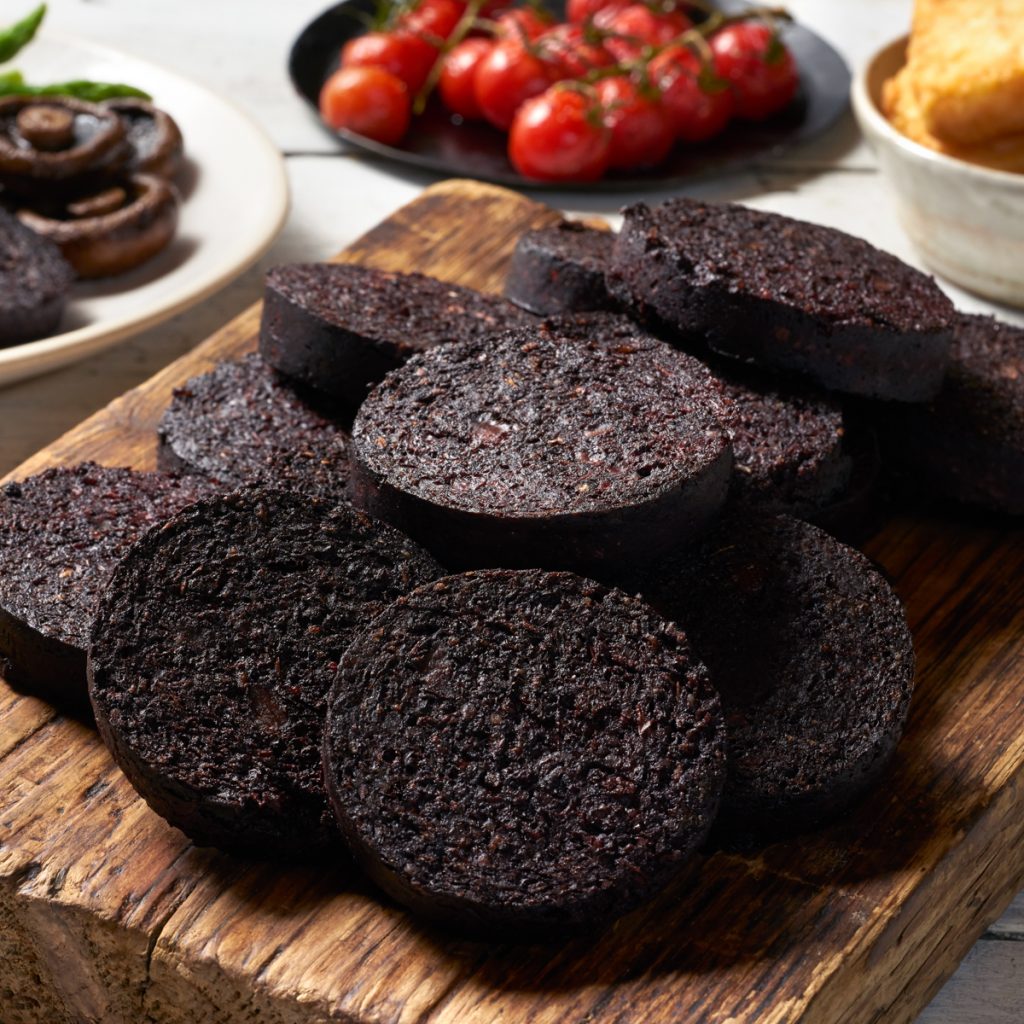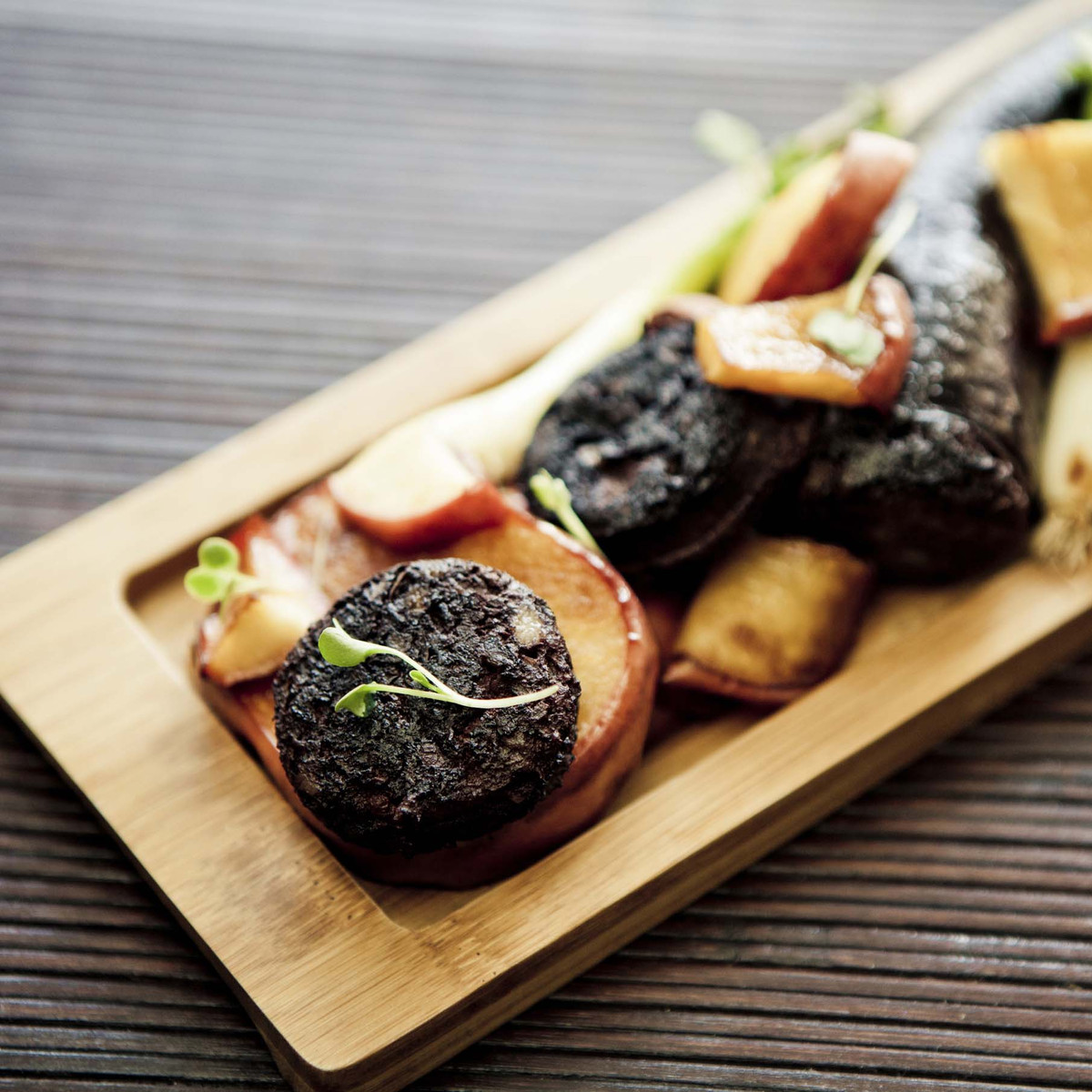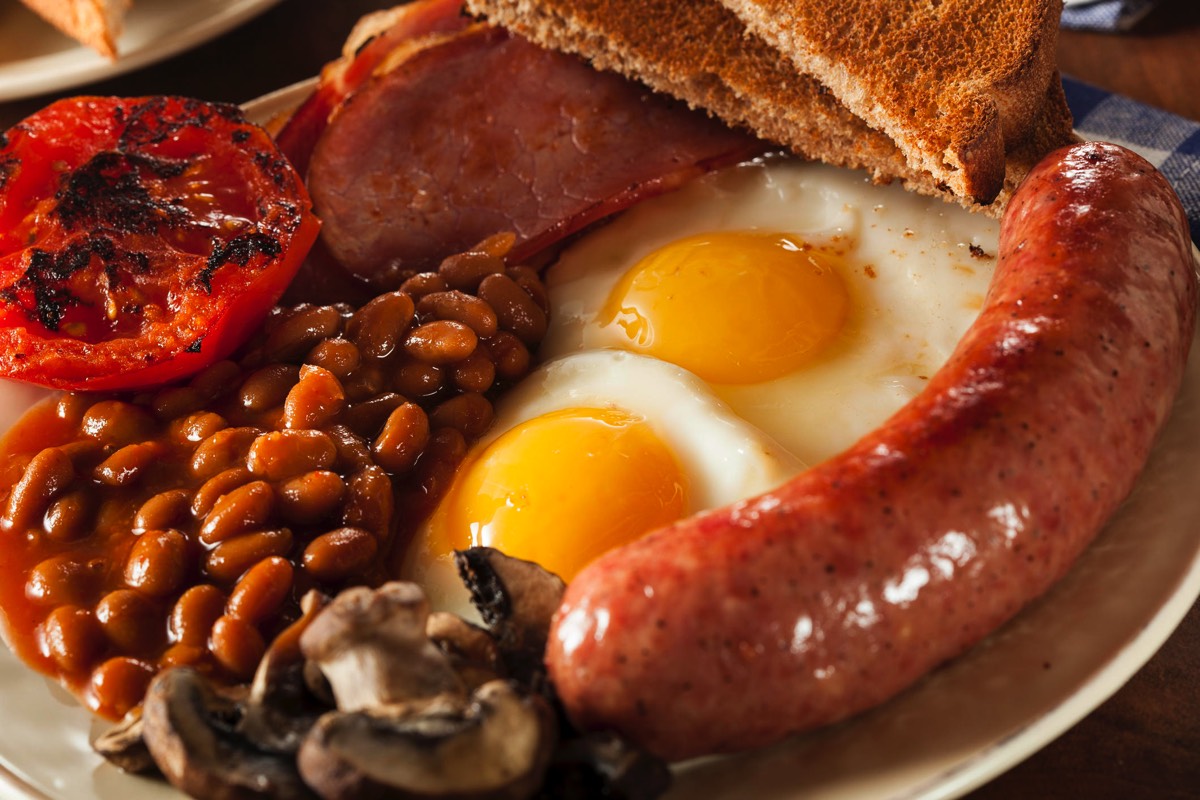Black
Pudding
Black pudding is a type of blood sausage originating in the United Kingdom and Ireland. It is made from pork blood, with pork fat or beef suet, and a cereal, usually oatmeal, oat groats or barley groats.

Black pudding has an interesting history all of its own, stretching back over thousands of years and many countries, but in Great Britain, the black pudding is an essential part of the English breakfast.
Black pudding is a kind of sausage, except that unlike normal sausages, you make it with blood. To make black pudding, you cook blood mixed with a filler (oatmeal) until it is thick enough to congeal when cooled and because of this, black pudding is one of those things people either love or hate.
The very first time that the black pudding appeared in literature was in 800 BC, when black pudding was mentioned in Homer's classic saga 'The Odyssey'. Homer famously described the way people felt in that time about black puddings, when he famously wrote;
"As when a man beside a great fire has filled a sausage with fat and blood and turns it this way and that and is very eager to get it quickly roasted."
Later on in the Odyssey, Homer had his champion Odysseus get into a fight for a prize of a stomach stuffed with pig blood and fat. Clearly, Homer was a man who liked his black pudding.
Black pudding was not just food for the poor, it was also food fit for the nobility and the extravagant breakfast banquets held by King Henry VIII at Hampton Court notably included black pudding on the menu, perhaps because it was a favorite a King who was renowned for his love of food.

In the 17th century, the consumption of black pudding was an incredibly controversial subject, one complete with its very own theological debate that fiercely raged around it, with many Christian scholars (particularly Methodists) arguing that nobody should be allowed to eat it at all.
Right in the middle of these arguments about the black pudding (which dominated much of the late 16th and early 17th centuries) was Sir Isaac Newton, who was famously vocal in his dislike of black pudding and notorious for refusing to eat it at breakfast time. Those against the eating of blood products claimed that the Apostles had ruled that Christians must not eat blood and claimed Newton’s abstinence from black pudding as non-religious support of their beliefs.
In the “Trial of a Black-Pudding”, written in 1652, Thomas Barlow, a future bishop of Lincoln, asserted that God had specifically proscribed blood eating among the Hebrews. Barlow claimed that no meat was unclean in itself, but that black pudding was a violation of both Jewish law and the Christian exemptions as dispensed by the Apostles.
By the time of Sir Isaac Newton’s death (in 1727), both parties on either side of the black-pudding debate had been feuding for almost 100 years and still to this day the subject of black pudding creates disgust in some and hunger in others.

Black pudding has always been a much loved regional delicacy in Great Britain, especially in the North West of England in Lancashire, where the town of Ramsbottom is home to internationally famous World Black Pudding Throwing Championships, a fun day for black pudding lovers.
Expatriates and British citizens who voyaged overseas took the tradition with them and as a result, black pudding is now part of the local cuisine of New Zealand and the Canadian provinces of Nova Scotia and Newfoundland and Labrador. Another kind of blood sausage called a white pudding is an essential ingredient of traditional Scottish and Irish breakfasts. Black and white pudding, as well as a third variant, red pudding, is often served as an alternative to fish and chips.

If you are concerned about your diet, Black pudding is a very healthy dish and an good source of protein, it is also essentially carb-free, making it an ideal British sausage replacement if you are on a low carb diet. There are relatively few calories in black pudding, especially when compared with other types of sausage and back pudding is rich in iron and zinc, two nutrients that are frequently missing from the average adult’s body. If you’re ready to try something different, give black pudding a try!
If you are interested in history, heritage and recipes of the traditional English breakfast, check out our official English Breakfast Handbook, lovingly produced by the English Breakfast Society.



